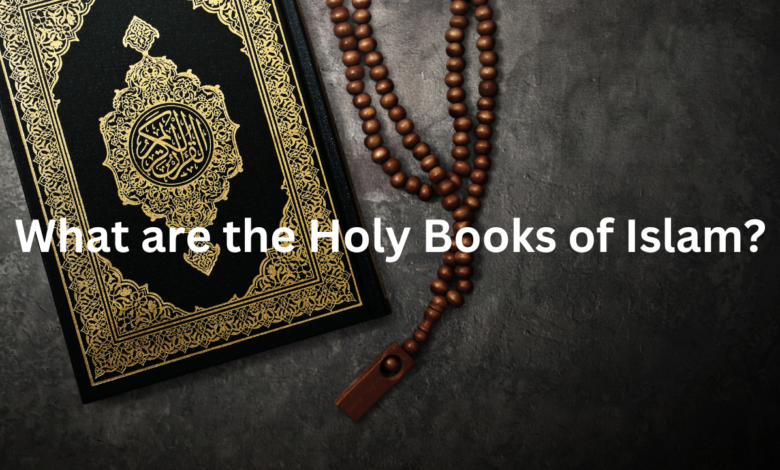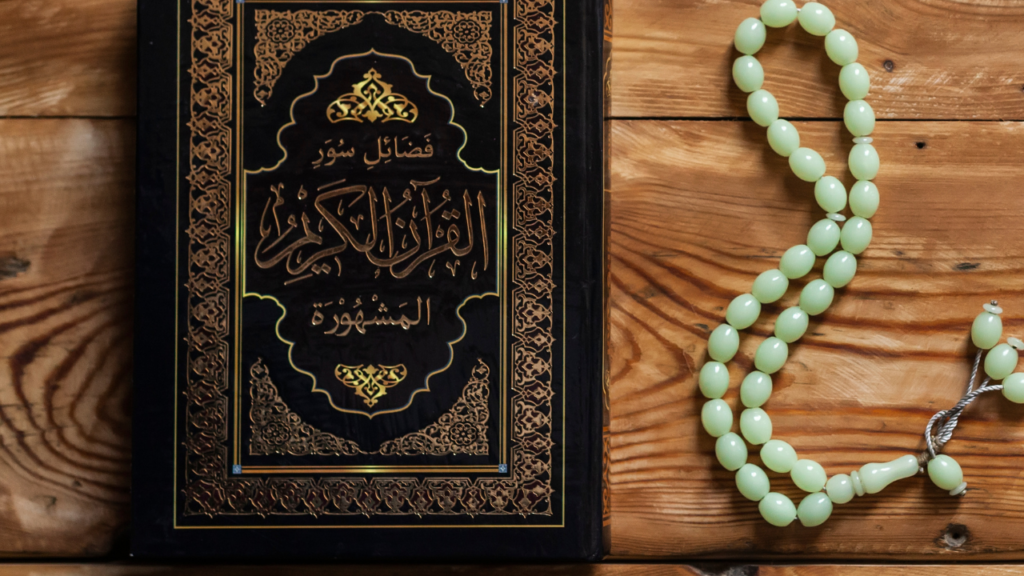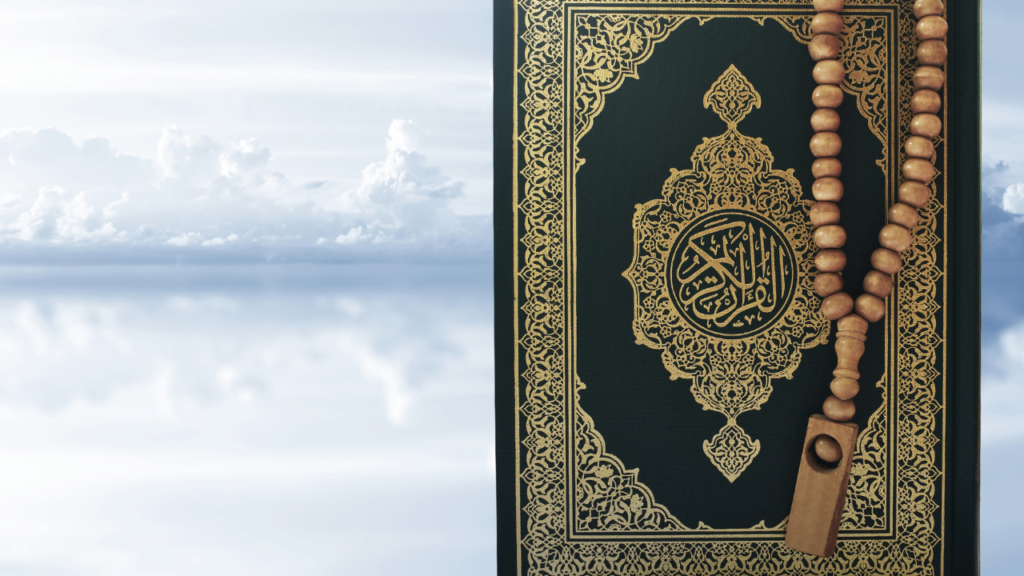What are the Holy Books of Islam?
Unveiling the Spiritual Foundations: A Dive into the Holy Books of Islam

What are the Holy Books of Islam?
The Quran is the holy book of Islam, believed to be the literal word of God as revealed to the Prophet Muhammad. It is central to Islamic faith, serving as a guide for Muslims in all aspects of life.

Introduction
Islam, one of the world’s major religions, has a rich spiritual and literary tradition that spans over 1,400 years. Central to this tradition are the holy books of Islam, which serve as guides for Muslims in matters of faith, practice, and morality. While many are familiar with the Quran, the primary scripture of Islam, there are other important texts that hold significance within the religion. In this article, we will explore the holy books of Islam and their roles in shaping the faith of over a billion people worldwide.
The Quran: The Ultimate Revelation
The Quran, also spelled as Qur’an or Koran, is the most sacred and central text in Islam. It is believed to be the literal word of God as revealed to the Prophet Muhammad by the angel Gabriel over a period of 23 years. The Quran is written in Arabic and consists of 114 chapters, known as surahs, which are further divided into verses, or ayahs. It addresses a wide range of topics, including theology, morality, guidance for personal conduct, and laws.
Muslims regard the Quran as the final and ultimate revelation from God, confirming and superseding previous scriptures such as the Torah and the Bible. It serves as a comprehensive guide for Muslims in all aspects of life, including worship, ethics, family, and societal matters.
Also check.
- What is Riba in Islam?
- What Is Islamism
- Who is Dajjal in Islam?
- Why is Pork Haram in Islam?
- What is a gin in Islam?
Hadith: The Sayings and Actions of the Prophet
While the Quran provides the fundamental teachings of Islam, the Hadith is a collection of sayings, actions, and approvals attributed to the Prophet Muhammad. Hadiths are an essential source for understanding the practical application of Islamic teachings, as they offer insight into how the Prophet lived and practiced his faith.
There are various collections of Hadith, with the most authoritative ones being Sahih al-Bukhari and Sahih Muslim. These collections meticulously scrutinize the authenticity of each Hadith and are considered highly reliable by the majority of Muslims. Hadiths cover topics such as prayer, fasting, charity, and interpersonal relationships, offering valuable guidance to Muslims seeking to follow the example of the Prophet.
Tafsir: Exegesis and Interpretation
To comprehend the Quran better, Muslims turn to Tafsir, which are commentaries or exegeses that explain and interpret the verses of the Quran. Tafsir texts are written by Islamic scholars and theologians who aim to provide context, historical background, and linguistic analysis of the Quranic verses. This helps Muslims gain a deeper understanding of the Quran’s intended meaning and its relevance to contemporary issues.
Tafsir texts are available in various forms, ranging from scholarly commentaries to simplified versions accessible to a wider audience. They play a crucial role in ensuring that the Quran’s teachings are correctly understood and applied.
Sunnah: The Prophetic Tradition
In addition to the Hadith, the Sunnah encompasses the actions, sayings, and approvals of the Prophet Muhammad. While the Hadith primarily focuses on recorded sayings, the Sunnah extends to the Prophet’s entire way of life, including his character, habits, and practices. Muslims look to the Sunnah as a source of guidance on how to live a virtuous and pious life.
The Sunnah is not a single book but a concept integrated into Islamic jurisprudence and ethics. It influences various aspects of Muslim life, from religious rituals to personal conduct.
Conclusion
The holy books of Islam, including the Quran, Hadith, Tafsir, and the concept of Sunnah, collectively form the foundational texts that guide Muslims in their faith and daily lives. These texts provide a comprehensive framework for spirituality, morality, and practice, serving as a source of inspiration and guidance for over a billion Muslims around the world. The Quran stands at the heart of this tradition, as the ultimate revelation from God, while the Hadith, Tafsir, and Sunnah offer valuable insights and interpretations to help Muslims live in accordance with Islamic principles and values.

FAQs
What is the Quran, and why is it important in Islam?
The Quran is the holy book of Islam, believed to be the literal word of God as revealed to the Prophet Muhammad. It is central to Islamic faith, serving as a guide for Muslims in all aspects of life.
What is the difference between the Hadith and the Quran?
The Quran is the primary scripture of Islam, considered the word of God. The Hadith, on the other hand, consists of sayings, actions, and approvals of the Prophet Muhammad, providing practical guidance on how to follow Islam.
What is the purpose of Tafsir in Islam?
Tafsir is the commentary and interpretation of the Quranic verses. Its purpose is to provide context, historical background, and linguistic analysis to help Muslims better understand the Quran’s meaning and relevance.
What is the Sunnah, and how does it relate to the Hadith?
The Sunnah encompasses the entire way of life of the Prophet Muhammad, including his actions, sayings, and approvals. While the Hadith focuses on recorded sayings, the Sunnah extends to the Prophet’s character, habits, and practices, providing a broader example for Muslims to follow.
Are there different versions of the Quran in different languages?
While there are translations of the Quran into various languages, the original Quran is in Arabic. Translations are considered interpretations and do not hold the same status as the Arabic text. Muslims often refer to the Arabic Quran for precise religious rituals and recitations.
How do Muslims use these holy books in their daily lives?
Muslims use these texts as guides for worship, personal conduct, ethical decisions, and legal matters. The Quran is recited in prayers, while Hadith and Sunnah provide practical insights into how to live a virtuous and pious life.
Are there other important Islamic texts besides the Quran, Hadith, Tafsir, and Sunnah?
While these are the most significant texts, there are other secondary sources and books in Islamic scholarship that provide additional insights and interpretations, such as Fiqh (Islamic jurisprudence) and Sufi literature.
How do Muslims ensure the accuracy and authenticity of Hadith collections like Sahih al-Bukhari and Sahih Muslim?
Islamic scholars meticulously scrutinize Hadith collections to determine their authenticity. The most reliable Hadith collections, like Sahih al-Bukhari and Sahih Muslim, undergo rigorous testing of their chain of narrators (Isnad) and the content (Matn) to establish their credibility.
Can non-Muslims read these holy books?
Yes, non-Muslims are allowed to read and study these holy books to gain a better understanding of Islam. However, it’s essential to approach them with respect and sensitivity to the faith’s beliefs and practices.
How can one learn more about Islam and its holy books?
Learning about Islam and its holy books can be done through books, online resources, and by engaging with Muslims and Islamic scholars. Local mosques and educational institutions often offer classes and resources for those interested in exploring the religion.




